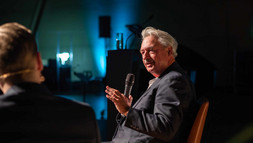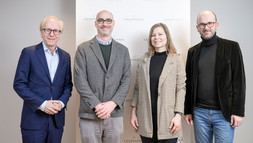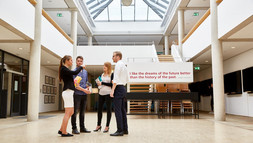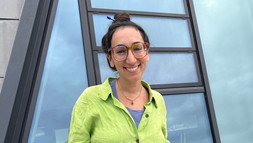Education
Leuphana developed a multi-award-winning study model with three Schools of Teaching and Learning that is still unique in Germany today:
The College, which provides students with orientation, multiple perspectives, and a solid qualification in their disciplines.
The Graduate School, which offers master's programmes and oversees doctoral studies.
The Professional School, a partner for lifelong learning.
All three Schools for Teaching and Learning offer programmes focusing on sustainability. What sets them apart is that sustainability can be integrated as a core theme throughout all studies—both as a major field of study and alongside other disciplines.
Through these programmes, students acquire analytical skills and foundational knowledge that enable them to contribute to analysing and solving complex sustainability-related problems in their professional and personal lives.
Aligned with the university’s mission, Leuphana aims to prepare students as future change agents. They should be able to make their own contributions to shaping a sustainable and liveable future within and beyond the academic sphere. The university itself serves as a central learning space through the Whole Institution Approach. This concept actively integrates the design of study programmes, teaching and learning environments, and the campus as a living space. Together, these elements create a holistic system where education, research, and practice mutually influence one another.
Bachelor’s Studies
A unique feature of Leuphana is its introductory semester: all approximately 1,400 first-year students start their academic journey together in the Leuphana Semester. Alongside subject-specific and methodological introductions, they take three interdisciplinary modules with peers from all degree programmes.
Students should learn to understand complex interrelations in the context of their origin, and to critically classify perspectives in their cultural contingency. In the module “Science Transforms: Responsible Action,” students examine the role and responsibility of science and society in a world undergoing change, focusing on designing a sustainable and desirable future.
Building on the Leuphana Semester, in Complementary Studies, students can take complementary sustainability-related seminars outside their major. Alternatively, they can choose a major centred on sustainability, which can also be combined with a minor focused on sustainability.







